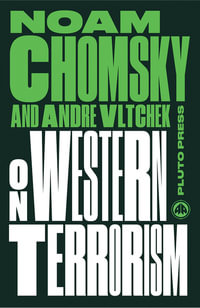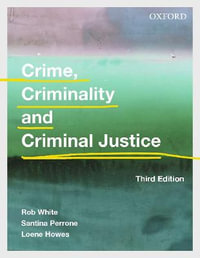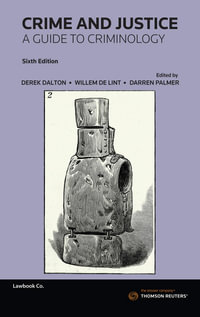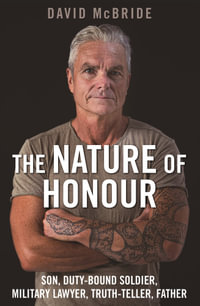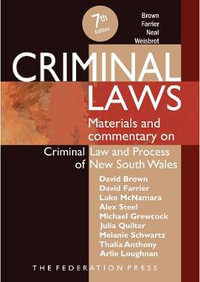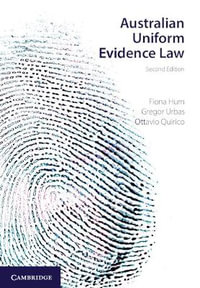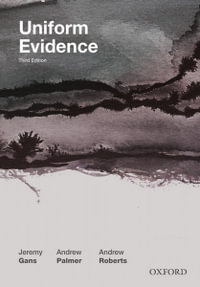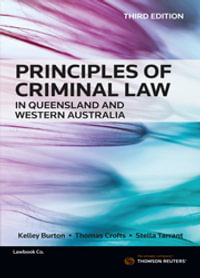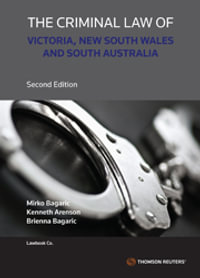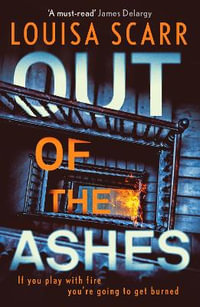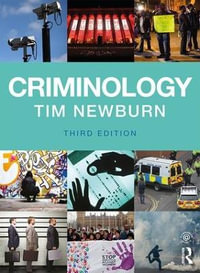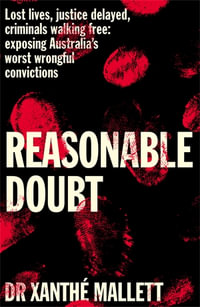When should we make use of the criminal law? Crimes, Harms, and Wrongs offers a philosophical analysis of the nature and ethical limits of criminalisation. The authors explore the scope of harm-based prohibitions, proscriptions of offensive behaviour, and 'paternalistic' prohibitions aimed at preventing self-harm, developing guiding principles for these various grounds of state prohibition. Both authors have written extensively in the field. They have produced an integrated, accessible, philosophically-sophisticated account that will be of great interest to legal academics, philosophers, and advanced students alike.
'this elegant, closely argued and convincing book is of great value and can be expected to be of lasting influence.' James Chalmers
'Crimes, Harms, and Wrongs . . . is a welcome addition to this field, and should clarify the reader's thinking on a breathtakingly broad range of issues. . . . This is an important book, and its] consideration of not only Anglo-American theory and law, but also German legal doctrines and writings on criminalisation, should ensure that this debate reaches new heights in the future.' Findlay Stark
'the result of the authors'] many decades of thought and writing on this fundamental subject is an integrated, accessible, philosophically sophisticated discussion of this subject.' Justice Gilles Renaud
'A.P. Simester and Andreas von Hirsch present an informed and systematic account of the principles that, in their view, should structure decisions about what to criminalize, and when.' Vincent Chiao
'an outstanding work, original in many respects and meticulous in its arguments. It represents the greatest advance on this subject since Feinberg's four volumes . . . an outstanding contribution to the re-invigorated criminalization debate.' Andrew Ashworth
'important, original, interesting, and often ingenious. Unlike some recent competitive books it has the virtue of making sound arguments. And like everything else the authors have written, it is a joy to read ...This is an absolutely wonderful book.' Douglas Husak
Industry Reviews
...this elegant, closely argued and convincing book is of great value and can be expected to be of lasting influence. -- James Chalmers * Edinburgh Law Review, Volume 17 *
...Crimes, Harms and Wrongs ... is a welcome addition to this field, and should clarify the reader's thinking on a breathtakingly broad range of issues...This is an important book, and one that should appeal to advanced students and academics with an interest in the proper extent of the criminal law.
...this book is remarkable for its careful analytical structure...the author's consistently and conscientiously draw distinctions which aid in the understanding of complex areas.
Those familiar with criminalisation theory already will definitely find this a rewarding and engaging book, which - through its structured and analytical approach - ought to provoke much thought and discussion. The book's consideration of not only Anglo-American theory and law, but also German legal doctrines and writings on criminalisation, should ensure that this debate reaches new heights in the future. -- Findlay Stark * Social and Legal Studies, Volume 21, Number 2 *
...the result of [the authors'] many decades of thought and writing on this fundamental subject is an integrated, accessible, philosophically sophisticated discussion of this subject. -- Justice Gilles Renaud * Criminal Law Journal, Volume 36 *
...A.P. Simester and Andreas von Hirsch present an informed and systematic account of the principles that, in their view, should structure decisions about what to criminalize, and when. -- Vincent Chiao * Criminal Law and Criminal Justice Books *
An outstanding work, original in many respects and meticulous in its arguments. It represents the greatest advance on this subject since Feinberg's four volumes.... I would expect this book to attract a great deal of discussion among lawyers and philosophers. I would also expect that discussion to be positive ... an outstanding contribution to the re-invigorated criminalization debate. -- Andrew Ashworth, All Souls College, Oxford
Important, original, interesting, and often ingenious. Unlike some recent competitive books it has the virtue of making sound arguments. And like everything else the authors have written, it is a joy to read. ... This is an absolutely wonderful book. I look forward to seeing it in print. -- Douglas Husak, Rutgers University
Head and shoulders above anything else that I have read in criminalisation theory so far. -- Antje du Bois Pedain, University of Cambridge







